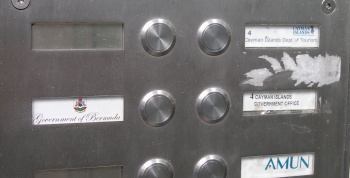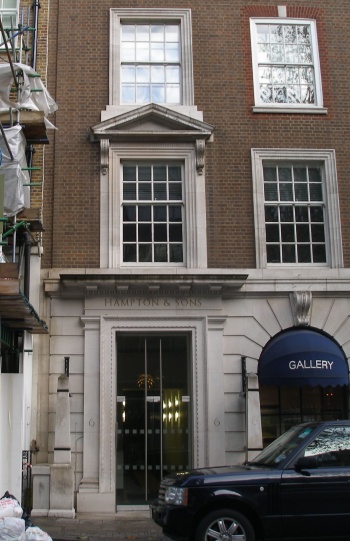Cayman Islands
The Cayman Islands is a British Overseas Territory located in the western Caribbean Sea. It is a known tax haven.
It is the world’s fifth-largest financial centre and has a well-developed offshore financial services industry. Firms in the Cayman Islands provide private banking, brokerage services, mutual funds, insurance, trusts, and company formation and management. It is home to over 500 banks and trust companies, 7,100 mutual and hedge funds, and 727 captive insurance companies. [1]
At top of tax haven secrecy index
In September 2011 the Caymans ranked number two in the Tax Justice Network's index of the world's most aggressive 'secrecy jurisdictions' providing secrecy for those people and organisations wanting to shelter their money.
- "It facilitates a huge number of opaque offshore companies and trusts which can be used to hide all manner of illegitimate activities," according to the index.
A spokeswoman for the Cayman Islands' financial secretariat told the Guardian newspaper however that,
- 'the territory had taken an increasingly significant role in global transparency efforts in the last 10 years. She argued there were no secrecy provisions in the islands' jurisdiction that prevent information being obtained by the tax information authority which assists in international tax matters.' [2]
Top 10 Cayman FTSE 100 users
A new tax havens database compiled by the anti-poverty charity ActionAid in October 2011 revealed that the Cayman Islands was:
- home to 174 companies owned by Barclays, ranging from the artfully named Ballon Nouveau Investments Limited to the more prosaic Barclays Structured Principal Investing GP. The same tax haven plays host to British Gas (Malaysia) SA and an Xstrata group company, Falconbridge (Botswana) Investments Limited.
Top 10
- Barclays- 174 subsidiaries
- The Royal Bank of Scotland Group - 37 subsidiaries
- HSBC- 30 subsidiaries
- Lloyds Banking Group - 26
- International Power - 20
- Standard Chartered - 17
- Prudential - 15
- Tesco - 14
- BP - 10
- Man Group - 10
Home of hedge funds and "jumbo directors"
Two-thirds of the world's $2,000bn hedge fund industry, which counts pension funds and public endowments as its biggest investors, is located in the islands.
A Financial Times investigation in November 2011 revealed that small group of Cayman Islands “jumbo directors” are sitting on the boards of hundreds of hedge funds as demand for independent directors booms in the Caribbean tax haven.
- At least four individuals hold more than 100 non-executive directorships each, and 14 have more than 70 – each worth as much as $30,000 a year. One has been listed as on the boards of 567 Cayman entities, almost all of which were hedge funds.
Independent directors’ appointments are not disclosed by the Cayman Islands Monetary Authority. The FT analysed thousands of SEC filings to find out which directors had sat on the hedge funds’ boards over the past four years.
Kevin Ryan, former head of hedge fund research for ABN Amro, called it 'the "Walmart" model of governance'. He told the FT it would be the next big scandal to hit the industry. “We have specialist directorship firms building obscenely large portfolios of directorships without even earning a rebuke from the Cayman’s regulator.”
Leading fiduciary services firms defend this practice. The founder of the Cayman’s largest such firm DMS and the holder, in 2006, of more than 560 directorships,Don Seymour, likens the issue to medicine: “A doctor working on his own can service about 400 patients a year. That same doctor in a hospital can serve 4,000 patients a year.” he says. [4]
Foreign lobbyists as diplomats
Bill Allison at the Sunlight Foundation says that data in their Foreign Lobbying Influence Tracker 'made us think that a lot of smaller countries used lobbyists to supplement or in lieu of traditional diplomats. Ted Bravakis, the public affairs officer for the Cayman Islands Ministry of Financial Services, offered some confirmation for that theory: "The Cayman Islands, as a UK Overseas Territory, approaches international relations similar to a private sector organisation. This means we take a very 'hands on' approach -- rather than relying on a diplomatic corps which is not afforded to us -- to build and reinforce relationships with foreign countries. This is especially the case with the US government, as we continually seek to reinforce our ties in relation to the Cayman Islands financial services sector and the longstanding commercial relationship between the U.S. and the Cayman Islands." [5]
Lobbyists
- see Cayman Finance.
Ex-lobbyists
Fleishman-Hillard UK conducted lobbying for the Cayman Islands Government until the end of 2009.
Affiliations
- Cayman Finance
- Cayman Islands Monetary Authority
- Member of the United Kingdom Overseas Territories All-Party Parliamentary Group
People
- Lord Blencathra - heads the Cayman Islands Government office
- Mary Chandler-Allen, was acting UK representative for the Cayman Islands for 28 years until July 2011
Contact
Cayman's UK office
6 Arlington Street, London, United Kingdom, SW1A 1RE[6]
References
- ↑ “International Narcotics Control Strategy Report, Volume II: Money Laundering and Financial Crimes,”U.S. Department of State Bureau for International Narcotics and Law Enforcement Affairs (3/06), at 124.
- ↑ Felicity Lawrence, Tax havens: G20 has failed to crack down, says campaign group, 4 October 2011, acc 5 Oct 2011
- ↑ ActionAid [Addicted to tax havens], 11 October 2011, accessed same day
- ↑ Sam Jones, Cayman directors sit on hundreds of boards, November 20, 2011 10:00 pm, acc 24 November 2011
- ↑ Bill Allison, Open Notebook: Tax Havens, Sep 08 2009, acc November 2011
- ↑ Cayman Island Government London Office, accessed March 2011

